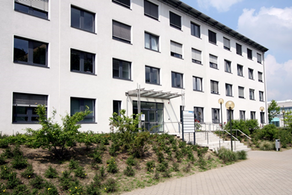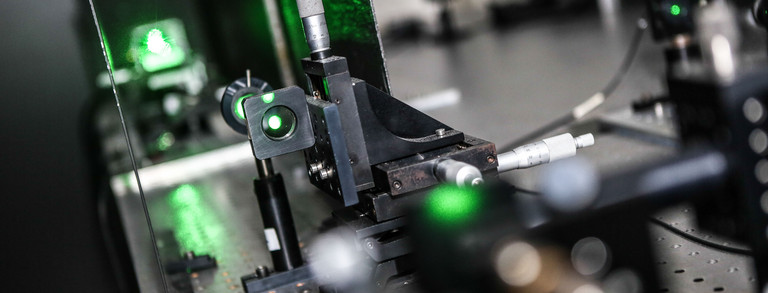Safe and flexible optical networks through intelligent transient suppression
Future optical networks must function reliably even with greater dynamic requirements. In more and more distributed data centers, for example, data is stored on distributed servers (web-based storage), resulting in heavily fluctuating traffic flows with high capacity requirements. Software-defined networking (SDN) enables efficient and resource-saving network operation, so that the available capacity can be flexibly adapted to current needs. Dynamic operation can be implemented in the most energy-efficient manner by (physically) switching wavelength channels on and off. Level transients caused by erbium-doped fiber amplifiers (EDFA) can impair the performance of the other wavelength channels and prevent error-free transmission. It is therefore necessary to develop intelligent concepts for transient suppression.
In the BMBF-funded project "IKT 2020 - Research for Innovation", the topic of security and reliability of the networks is addressed in the area of "Communication Technology and Networks". Here, existing simulation models of EDFAs are to be expanded in order to quantify the influence of the level transients and to be able to develop and evaluate concepts for transient suppression. The project is carried out in cooperation with European partners from other universities and from industry.
- Development of simulation models with inhomogeneous saturation behavior of single-mode erbium-doped fiber amplifiers
- Development of concepts for intelligent transient suppression based on the simulation models mentioned



